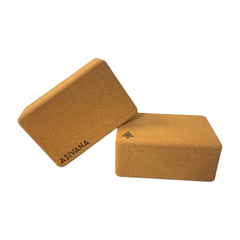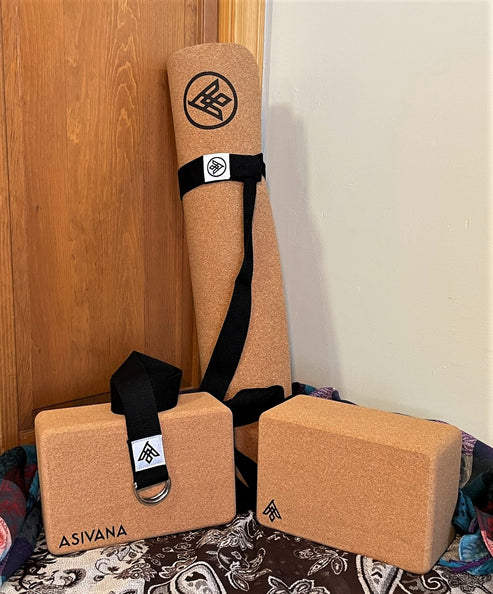Ahamkara (Ego, Sense of Individuality)
Jack UtermoehlShare
Ahamkara is a Sanskrit term meaning “ego” or “the I-maker.”
It refers to the part of the mind that identifies with individuality and constructs a personal sense of self—“I am this,” “This is mine,” “This is who I am.”
In yogic and Vedantic philosophy, Ahamkara is considered a necessary but limited function of the mind that helps organize experience, but also contributes to suffering (dukha) when mistaken for the true Self (atman).
Etymology and Meaning
Sanskrit Spelling: अहंकार
Root Words: "Aham" (I) + "Kara" (maker or doer)
Translation Variations: Ego, self-concept, individual identity, the "I-maker"
Pronunciation: Ahaṅkāra [uh-HUM-kah-rah]
Ahamkara is not the ego in a purely negative sense. It serves a function in helping us navigate the world—but yoga warns against becoming trapped in it, believing it to be the Self.
Ahamkara in Yogic and Vedantic Philosophy
Ahamkara plays a central role in how the mind relates to experience:
- In Samkhya Philosophy: Ahamkara arises after the emergence of the intellect (buddhi) and is responsible for the division between “I” and “other.”
- In Yoga: Patanjali lists egoism (asmita) as one of the five kleshas (obstacles), all of which reinforce ignorance of the Self.
- In Vedanta: Liberation involves disidentifying from Ahamkara and realizing the Self as pure awareness, not a personality or role.
Ahamkara says, “I am the body,” “I am successful,” or “I am unworthy.” Yoga invites us to look behind those identities and discover the Self that is beyond all labels.
Related: Antahkarana (Inner Instrument)
Symbolism and Elements
Color: Yellow or orange, symbolizing identity, willpower, and the solar plexus
Element: Fire (Agni), representing transformation and personal power
Chakra: Manipura (solar plexus), the center of ego, confidence, and personal identity
Mantra: Ram, seed sound of Manipura chakra
Yoga Essentials for Your Practice
Support your yoga journey with high-quality, sustainable props designed for comfort and stability.

Crafted from eco-friendly cork for durability and a comfortable practice.
$24
Shop Now
Includes everything you need to get started: a mat, blocks, and a yoga strap.
$120
Shop NowPractical Application
In Yoga Practice
- Observe the voice in the mind that says “I like this” or “I don’t want that”
- Use pranayama and meditation to create distance from egoic identification
- Practice humility and self-inquiry as tools to soften rigid self-concepts
In Daily Life
- Notice when you are acting from identity, image, or comparison
- Shift from “What do I want?” to “What is needed?” in your decisions
- Journal or reflect on the question: “Who am I without my roles, successes, or failures?”
Quotes and Wisdom
"You are not the mind. You are not the ego. You are the witnessing presence behind it all." — Sri Nisargadatta Maharaj
"The ego seeks to protect and control. The Self simply is." — Ram Dass
Modern Relevance
In a world of curated identity, personal branding, and external validation, Ahamkara is constantly reinforced.
Yoga offers an alternative: not to destroy the ego, but to see through it—to use identity as a tool, not a prison.
When we release the grip of Ahamkara, we uncover a quieter truth that is not about being someone, but about being itself.
Related Concepts
Atman: The true Self—unchanging, eternal, beyond ego
Asmita: Egoism, the attachment to identity as a klesha (obstacle)
Viveka: Discernment, the ability to distinguish Self from not-Self
How to Work with Ahamkara
Mindset: Understand the ego as functional, but not foundational
Actions: Question identity-based thinking, and practice selfless service (seva)
Reflection: Ask, “What identities am I clinging to—and are they helping me grow?”
Suggested Reading
- I Am That by Sri Nisargadatta Maharaj
- The Untethered Soul by Michael A. Singer
- Yoga Sutras of Patanjali
Conclusion
Ahamkara, the ego or "I-maker," helps us function but can also obscure our true nature.
Through yoga, meditation, and discernment, we learn to see beyond identity and rest in the vastness of pure awareness—the Self that needs no label or defense.






